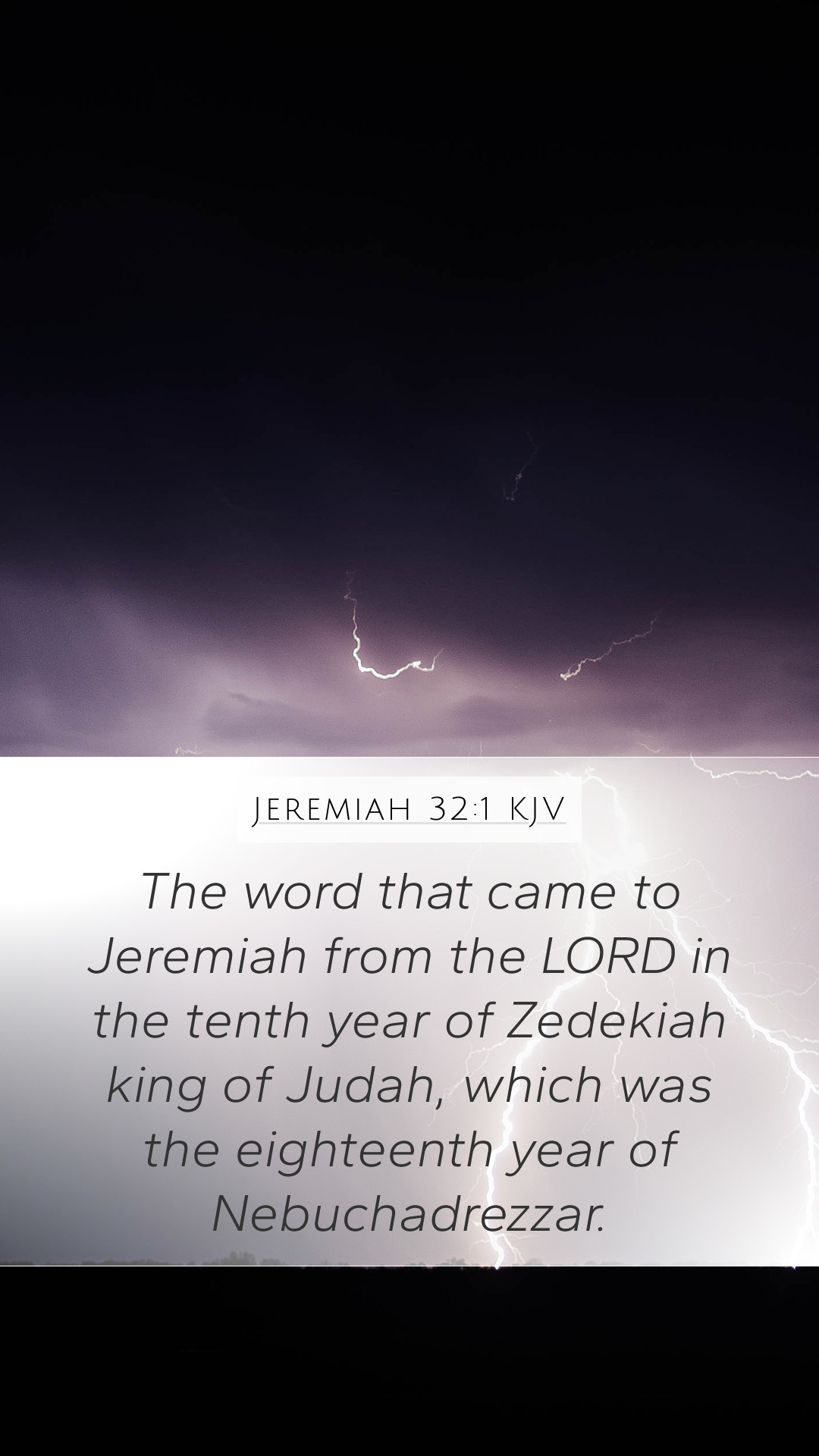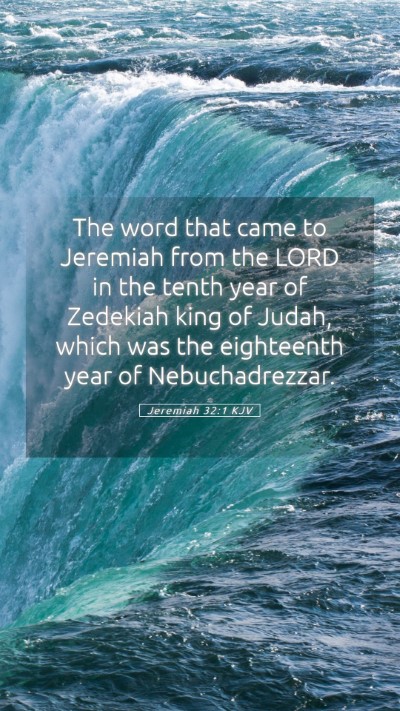Understanding Jeremiah 32:1
Jeremiah 32:1 states:
“The word that came to Jeremiah from the Lord in the tenth year of Zedekiah king of Judah, which was the eighteenth year of Nebuchadnezzar.”
Significance of the Verse: This verse marks a critical point in biblical history, occurring during the siege of Jerusalem by the Babylonians. It serves as a backdrop to the events of Jeremiah's prophetic ministry and highlights the trials faced by the people of Judah. Through this verse, we find profound insights into God's sovereignty and the challenges of faith.
Bible Verse Meanings and Explanations
The implications of this verse encompass both theological and historical perspectives. Here we summarize its key meanings:
- Historical Context: Jeremiah’s prophecy takes place within the tumultuous period of the Babylonian siege, showing God’s ongoing communication with His people even in desperate times.
- Divine Communication: The phrase “the word that came to Jeremiah from the Lord” emphasizes the active role of God in guiding His prophets and His people. The noted timing, in the tenth year of Zedekiah, anchors the prophecy in a specific historical moment.
- Judgment and Hope: This verse leads into a narrative that includes themes of judgment for sin but also offers hope through future restoration, demonstrating a dual aspect of God’s character—justice and mercy.
In-Depth Bible Verse Analysis
Examining the text further through insights from respected commentaries:
Matthew Henry's Commentary
Matthew Henry notes that this verse is significant because it shows the exact timing of God’s word reaching Jeremiah. Despite the surrounding chaos, God’s plan is constant. The importance of documenting the date underlines the historical reliability of Scripture, stressing that prophecies and their fulfillments are grounded in real events.
Albert Barnes' Notes
Barnes elaborates on the implications of divine communication found in this verse. He emphasizes that it demonstrates God's continued engagement with His people, especially during challenging times. It affirms that through the prophet, God is still speaking, intending to prepare them for what is to come—both judgment and eventual restoration.
Adam Clarke's Commentary
Clarke discusses the sociopolitical context, highlighting that the people of Judah were in a state of despair due to outside oppression. He points out that this serves as a reminder of the importance of keeping faith amidst adversity and reinforces the integrity and authenticity of Jeremiah’s prophetic ministry.
Applying Bible Verses to Daily Life
This verse has modern applications that encourage believers to reflect on God’s words in their lives. It reminds us to:
- Listen for God’s word: Just as Jeremiah received a message from God, we too can expect divine guidance through prayer and reflection on Scripture.
- Stand firm in faith: Facing difficulties or crises encourages believers to depend on God’s promises and remain resolute.
- Recognize God’s sovereignty: Even when circumstances seem bleak, faith in God's overarching control is essential.
Cross References
- Jeremiah 29:10-11 - A promise of hope and future restoration.
- Isaiah 55:10-11 - God's word achieving its purpose.
- Lamentations 3:22-23 - God's faithfulness and mercy amidst suffering.
Conclusion
Jeremiah 32:1 serves as a reminder of God’s commitment to His people, the importance of prophetic voices in history, and the reality of divine guidance even in tumultuous times. Engaging with this verse can enhance your Bible study insights and facilitate a deeper understanding of Scripture.
Further Study Resources
For those interested in exploring more about this and related passages, consider using Bible study tools and Bible study guides available online. These resources can provide structured lessons and historical context that deepen your study and application.


